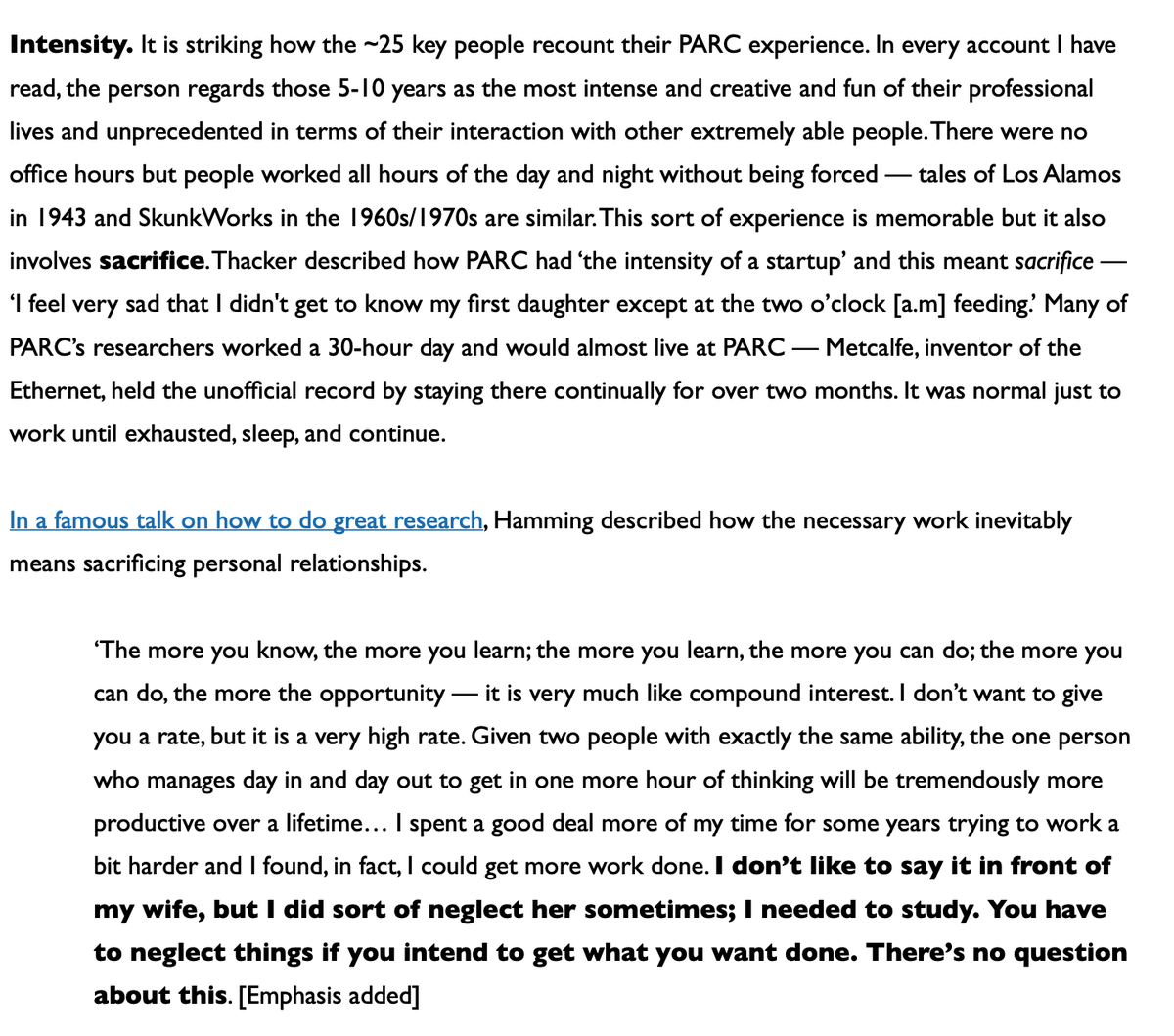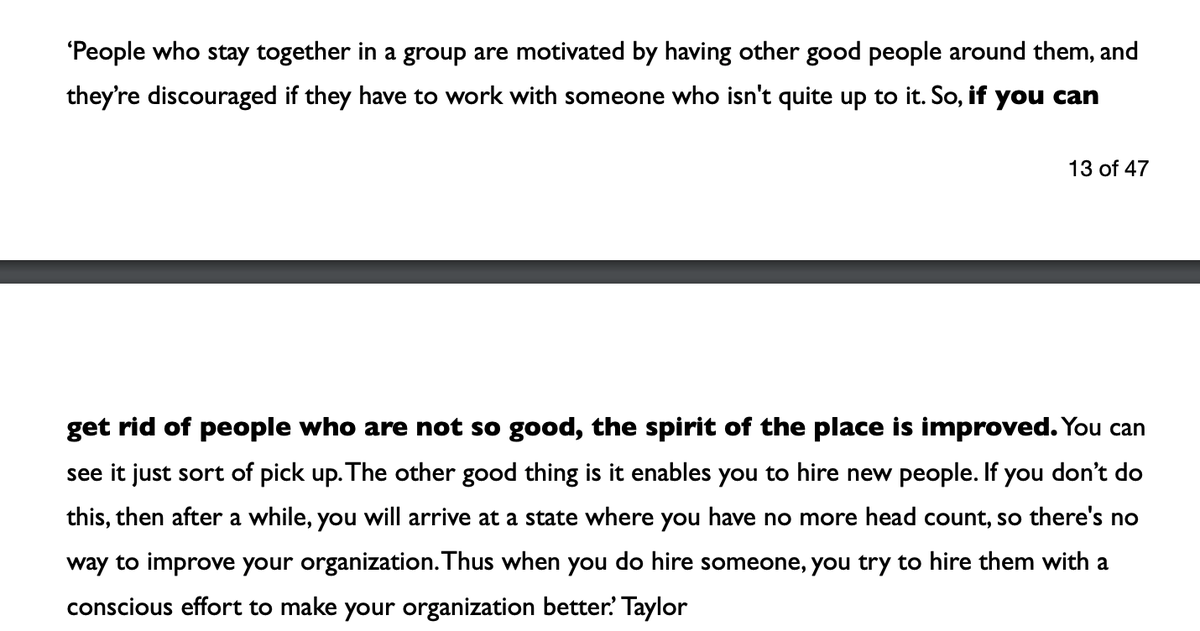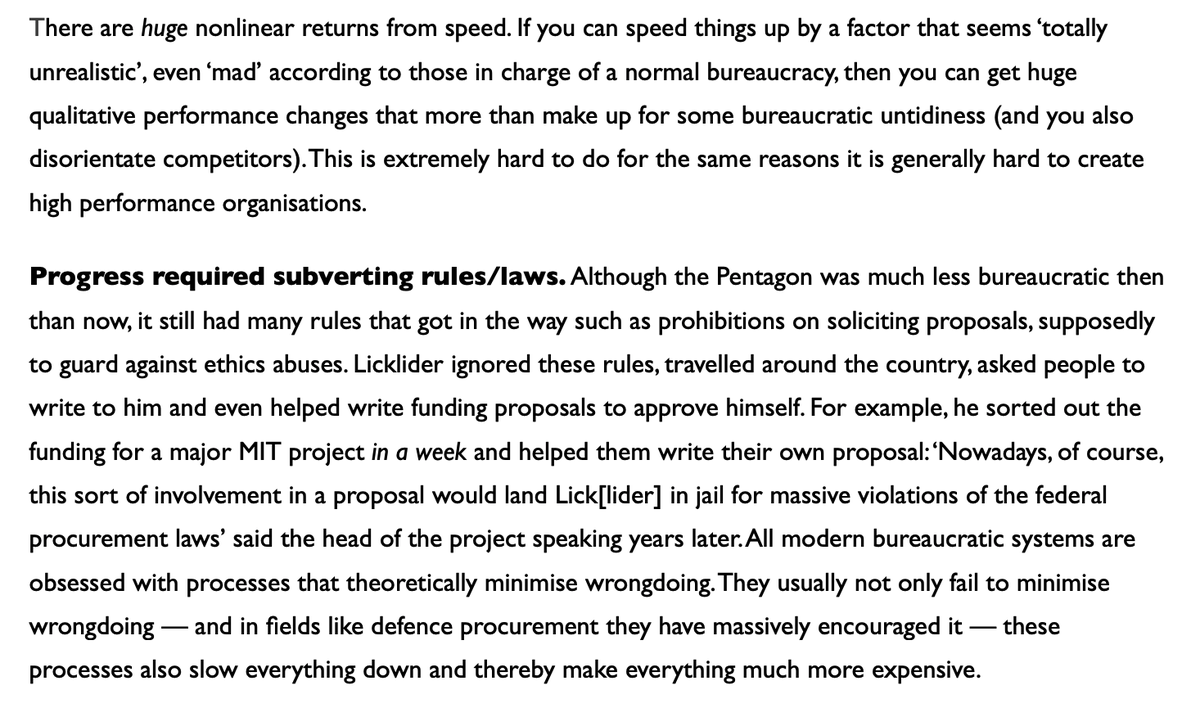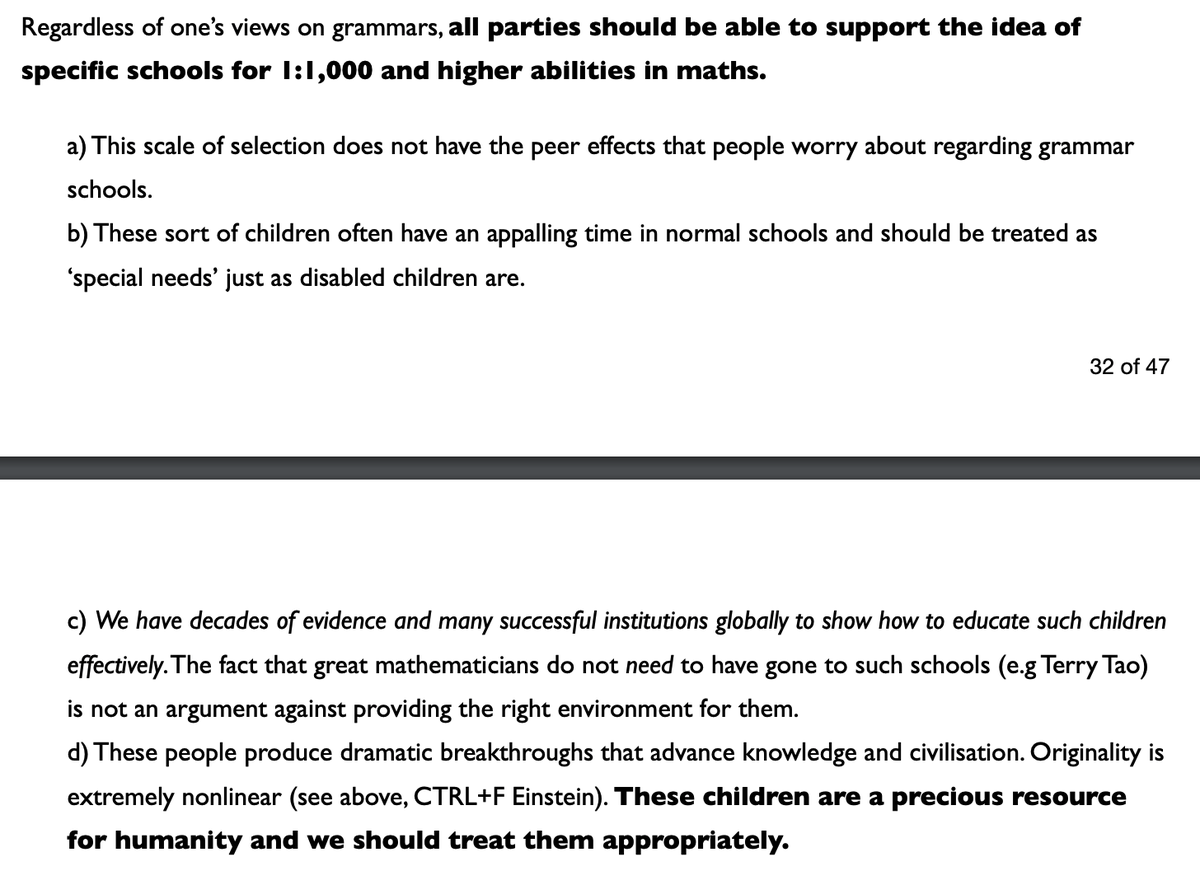If you’re thinking of applying for the No 10 skunkworks job, you should prob read Cummings’ massive PDF (?) on DARPA and PARC and the romanticism of there being “no office hours but people worked all hours without being forced” https://dominiccummings.files.wordpress.com/2018/09/20180904-arpa-parc-paper1.pdf">https://dominiccummings.files.wordpress.com/2018/09/2...
And yes, it is a PDF.
I’d imagine anyone who’s worked in a people or HR function at a real, actual start-up in the last few years would come out in hives reading all of the 50x performance nonsense in here, because yes! employment law is a real thing, even for super geniuses.
It& #39;s very weird reading a theory of innovation written by someone who (afaik) up until this point had mostly only read about it in books. It’s like someone who’s never tasted a cake but read lots of recipes explaining how they imagine cakes might taste.
If you’ve spent any effort trying to improve working practices in the tech industry in the last 10 years, this is a very dispiriting read. It’s rather quaintly old-fashioned, like an artefact from the 1960s, but is actually only from 2018.
Sigh.
I’m not going to tweet the whole, sorry thing, but I think *this* is where it loses the plot fairly deeply, and entirely forgets that being part of government in a functioning democracy is not the same as running an elite R&D facility.
This bit in particular: “There are huge nonlinear returns from speed. If you can speed things up by a factor that seems ‘totally unrealistic’, even ‘mad’ according to those in charge of a normal bureaucracy, you can get huge qualitative performance changes"
Compare this line in favour of "intellectual elitism" with Gove’s Ditchley speech, which sets out the need to “to make Forgotten Man our first concern” and to de-elitify the civil service, while also making a case for more oblique ARPA-style experimentation.
Obviously in 2018 Cummings had not yet learnt to loathe the Lacan-reading English graduates. Or perhaps, not yet learnt to fear they would read his essays and spot the inconsistencies.
Honestly, FML and my general interest in accountability. Btw, if you’re an educator and get to the weird bit about how child maths geniuses are a gift to humanity on pp. 32–3, I’d be fascinated in hearing your views, because … well, for a range of reasons.
Anyway, having read all of this, I’m not sure it sits all that comfortably with the concept of “levelling up”.
You’ll be pleased to hear that I’ve nearly finished. Also, interesting to note that Mark Warner gets a personal shout out.
Should you care, the tl;dr is an argument for less bureaucracy, more speed and minimal impediments for progress; a v strong (almost religious) faith in those who have ability in maths and physics; and decentralised funding pots that, where possible, go straight to the talent.

 Read on Twitter
Read on Twitter








